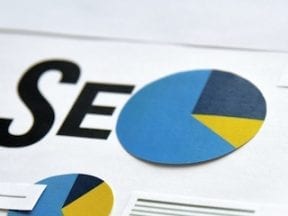
The shared goal of search engine optimization and pay-per-click advertising is to drive consumers to a website. But you can’t expect the immediate results in SEO that paid search often produces. And approaching PPC with an SEO orientation misses opportunities.
Search engine optimization is different than pay-per-click advertising. While they share the goal of driving searchers to a website, you can’t expect the immediate results in SEO that paid search often produces. Likewise, approaching PPC with an SEO orientation misses opportunities.
The Right to Rank
With SEO, you earn the right to rank in search results. You pay for that right in PPC.
Content relevance is critical in SEO. There’s very little chance that you could rank on page one for any term that wasn’t relevant to the content on your site. No site has the right to rank, no matter how big the brand or how much it spends on content.
Organic rankings are largely based on searchers’ intent. For example, an ecommerce site is less likely to rank for an informational phrase, such as “how to polish boots.” The sites that rank for that phrase are military and fashion blogs, or instructional.
Google has determined, in 20 years of analyzing data, that searchers have expectations based on the keywords they use. When an organic listing doesn’t meet that need, searchers are more likely to bounce back to choose another result. In turn, that contributes less satisfaction with search results overall (and the search engine).
In paid search, lower relevance impacts your Quality Score — Google’s measurement of page quality and the relevance between your ads and your content — which impacts the cost per click. But if you’re willing to increase the bid, you can still rank in paid search when the content couldn’t rank in organic search.
Links
Beyond relevance, the authority conveyed upon a site by the links from others still plays a central role in organic search algorithms. If your site lacks the quality and quantity of links required to outrank the competition for a search phrase, then it’s less likely that it will rank.
Linkless landing pages, on the other hand, typically perform well in paid search — landing pages are the preferred approach when specific messages might not be appropriate for the broader site audience.
Internal links are important as well for SEO, but not for PPC. The hierarchy of your site’s internal linking and navigation demonstrates to search engines which pages are more valuable. More link authority flows to pages that are linked from the home page or the header and footer navigation, giving them a stronger chance to rank and drive revenue.
Conversely, landing pages could be orphaned from the rest of the site and still perform well in PPC.
Appearance of Listings
Organic search results are shrinking. This is better for advertisers, but not for SEO. Ads on Google search results rank first and last on the page, and sometimes to the right of organic results. Even the content in position zero — Google’s featured organic “answer box” snippets — is often pushed down the page.
Those same answer boxes can produce less site traffic, however, as searchers are less likely to click when they can read the answer on the results page. So, while you can capture many more eyeballs in a featured snippet, that’s traffic that in years past would have gone to your site. Ads are not eligible for featured snippet placement.
Organic search results are shrinking.
Another oddity of organic search is Google’s inconsistent use of structured data. We can use, say, Schema.org markup, but there’s no way to guarantee that Google will apply it for the more visible featured snippets and rich snippets, such as reviews stars, photos, and pricing.
The content that displays in organic search results listing is typically based on that page’s title tag and meta description — unless the search engine decides that other words from the page would be more relevant to the searcher’s query.
But with PPC ads, when you specify copy, that’s the wording that will show.
Costs
PPC ads are trackable by keyword — from impressions to clicks to revenue. You can easily determine which keywords drive the most value.
That’s not the case with SEO. Google no longer reveals the connection between keyword and conversion, thanks to secure search.
Organic search marketers can see Google and Bing traffic data by keyword in Google Search Console or Bing Webmaster Tools, but not in an analytics package. Yes, there’s a report for organic keywords in Google Analytics but the “not provided” row accounts for 75 to 95 percent of the data. What remains is not suitable for decisionmaking, in my experience.
Analytics platforms assume all traffic from search engines is organic, so you don’t have to tag pages for SEO tracking. PPC traffic must be tagged to track it — by group, campaign, and other characteristics. Segmenting search traffic can be helpful, but the placement of tags is prone to human error and can result in data loss.
SEO practitioners make recommendations but often rely on others — developers, designers, copywriters, operations staff — to implement. PPC staff, on the other hand, can execute much of the work themselves. They typically need assistance with landing pages and tracking elements, but they can entirely manage campaign structure and bidding. Thus PPC ads are often faster to launch than SEO.
Thus PPC ads are often faster to launch than SEO.
The cost associated with paid search is the final and most obvious difference. SEO is not free as some imagine it. It takes significant ongoing investments to analyze and implement content, structure, and other optimizations.
Paid search expense is more upfront: paying to bid on keywords and set up the campaigns. But PPC ads can benefit from the assistance of a Google or Bing employee that you don’t have to pay for, assuming you spend enough.
Which Is Better?
With SEO you do not control whether your page will display in search results or what that listing will look like. But the benefits last longer. With PPC, you have more control over the appearance and timing of the ad, but you have to pay it.
Using SEO and PPC simultaneously can maximize visibility in search results. That’s why many businesses do both.




